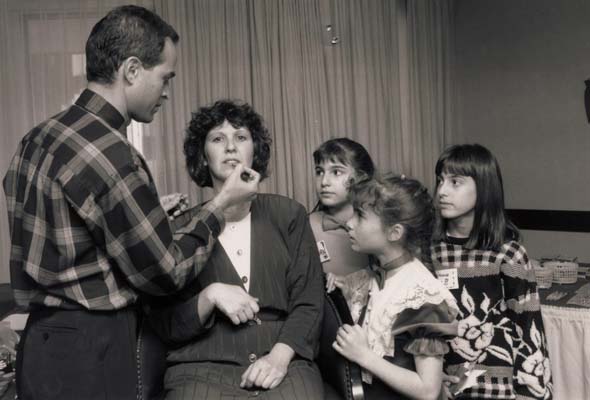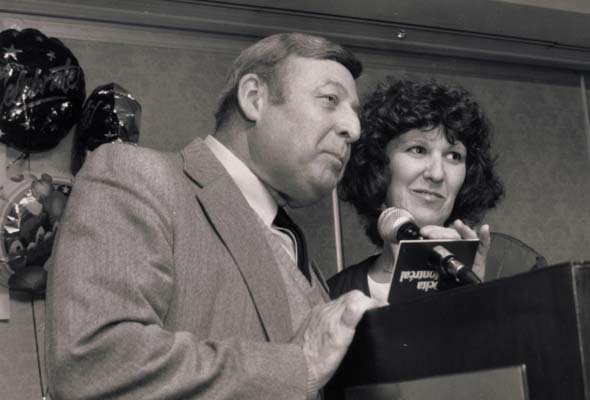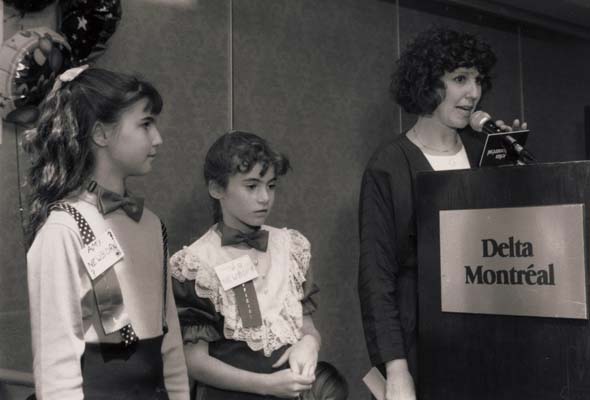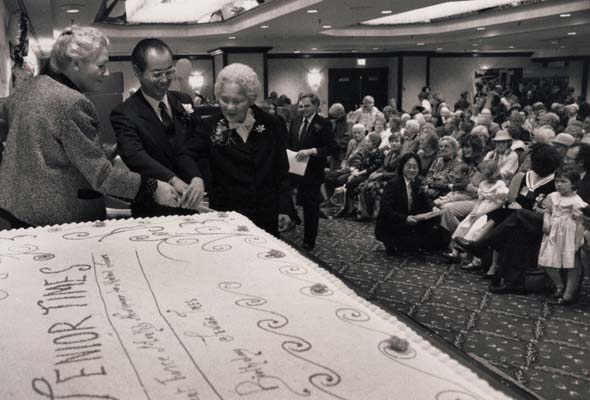We can’t all be perfect all of the time. Here are a few of our biggest bloopers.
On the right-hand side of one of our papers printed in the 1980s, there was a half-page box with the words “X ad goes here.” We had sent the film to the printer and somehow it got lost and they printed the page without the ad on it. This can no longer happen because we send everything by computer camera-ready.
Now that the Griffith McConnell residence is no more I can tell this story: We printed an ad for this residence with the following line in small print: “Infrared light in all pubic places.” The director of the residence was very unhappy with the mistake even though I tried to get her to see the humour in it. Still, she refused to pay anything for the ad. On this and other occasions, I have often thought of what my brother David, who got me started in the publishing business, often says: “Money comes and goes but time only goes.”
In 1988, we had our first “Times of Your Life” festival. It was free and we had 5,000 readers and admirers showed up at the Delta Hotel, who gave us their first floor without charge as a promotion that included some advertising. Exactly one year later, we had to pay for the venue, so we decided to charge people $2 for the two-day festival. Included were seminars and a piece of a birthday cake large enough for thousands, not to mention all kinds of freebies, advice from kiosks and workshops. Can you guess what happened? We lost 80 per cent of our participants. I guess they were insulted by the entrance fee.
The ’80s were a time when we relied on the phone. We had no email and no fax. Advertisers had to tell us what they wanted in their ads by phone. It was not impossible to “send a proof,” but it was difficult. Advertisers could come to our office to check their ads, but often they would see tiny strips of lines and letters waxed or glued onto a “velox”—shiny paper you could wax and stick things on.
We used a lot of couriers in those days.
We started in October 1986 with a typesetter named Eli Adler who would type out the stories, or his daughter did, and then run them off on strips from some kind of machine. Does anyone remember what it was called? Then he would have me stand beside him at the paste-up table, and call out “Give!” I would fork over the ad or the story and he would paste, or more accurately, slam, it down in any order. That was the layout then!
The next month I switched to Studio Apostrophe and began working with Brian Topp, who ran for leader of the NDP two years ago. Brian was at the forefront of desktop publishing at the time and had the first Macintosh in Montreal that was used to “typeset” a newspaper”—a machine now only found in museums. It was about one foot square, black and white only, and we could only create simple ads on it and then stick on logos. We had to lay out the pages as we did at Eli’s. It turned out to be only slightly more sophisticated.
These are from our print archives. They will give you an idea of how our “issues” have changed … or have they?
Volume 1 No 1 October 1986 Front page headline:
Power of the Elderly
We knew they had power. We just didn’t know we shouldn’t call them (now us) the elderly. How we, the boomers, refer to “older people” has definitely changed as we have “aged.” Oops! The word is now matured … or is it ripened?
We, the boomers, no longer think of ourselves as seniors. And we are certainly not elderly. Yet, in 1986, when I was 36, it felt perfectly reasonable to name my newspaper The Senior Times. Little did I know that by the time I was over 50 I would not think of myself as a senior and that I would be harassed to change the name of my paper to: The Mature Times, The Good Times, The Boomer Times, The Golden Times, The Times of your Life, The Times of Montreal, Experienced Montrealers, or What Times Are These? By the way, all of these, except the last, were recommended name changes at one Time or another during the past 27 years.
We had some good advice in those days from seniors we interviewed on the subject of companionship in the February 1987 issue.
From Joe, then 85, whom we met at the Cummings Centre (then called The Golden Age Association) in 1986, speaking about his relationship with Bessie:
“Since I met Bessie, my life has changed a lot. I sold her culture and I got her soul. We give it all we got. When you give it all you got, it can’t be bad. My advice to younger people is to take life easy. Don’t abuse it. Friendship is important. Sex is less important. But if you have a woman, call me up and I’ll still give you a few lessons.” Thanks, Joe!
Volume 111, No. 15. 1989 Front page headline:
Tennis is not a game: it’s a life, say seniors
What else is new? All you have to do is walk over to the Mount Royal Tennis Club to know that this statement is still true.
EDITOR’S NOTE
I want to express my sincere appreciation to all of you who wrote about my mother’s death and how much my article in the September issue, “No family or residence is perfect, but we must try harder,” resonated with you.
It helped me to be able to share my feelings. I worried about whether it was too intimate, but then I’ve always expressed myself openly and intimately to my you and this seemed the time to continue that tradition.
Your letters and comments touched me deeply!





Be the first to comment on "The Senior Times in the ’80s: Letting you in on a few hot issues"